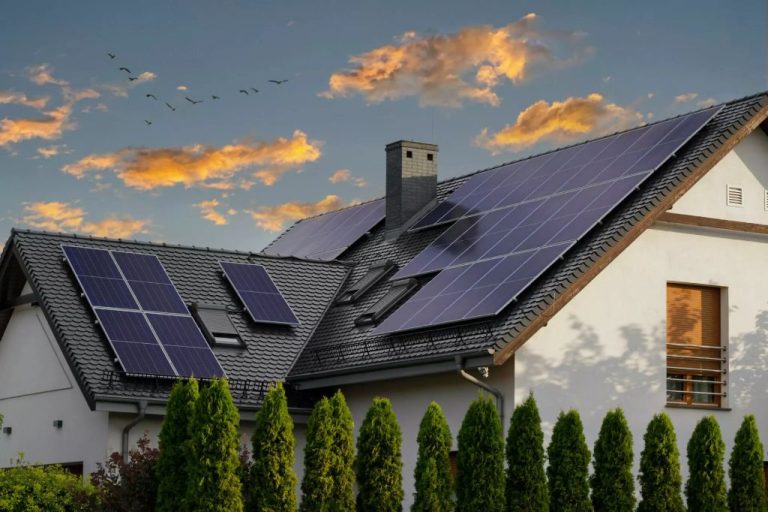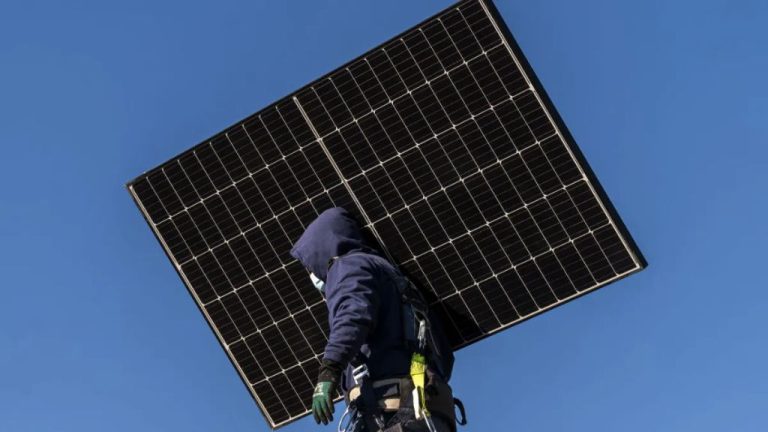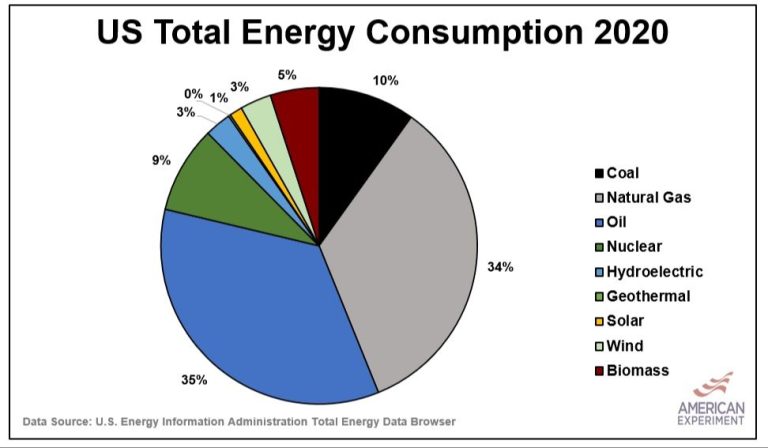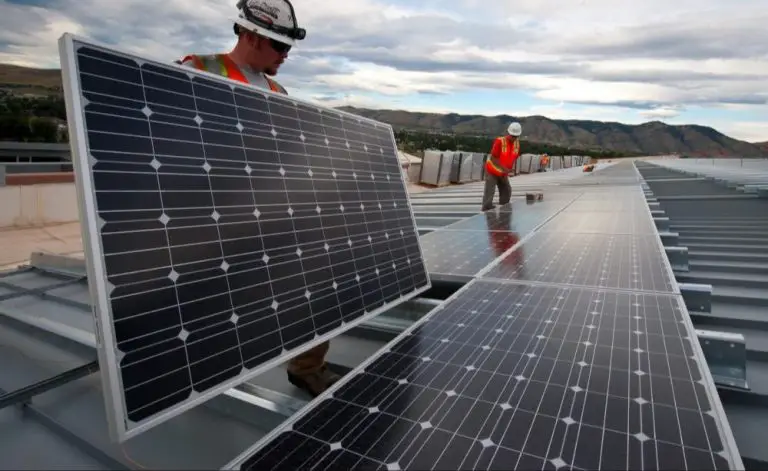What Are The Job Prospects For Solar Energy Workers?

The solar energy industry has experienced rapid growth over the past decade. As the costs of solar panels and installation have declined, more homes and businesses are adopting solar power. This growth has led to an increase in solar jobs. According to one report, the global solar energy market size was valued at $94.6 billion in 2022, and is projected to reach $300.3 billion by 2032. (Source) With this industry growth, employment in solar energy occupations is projected to grow significantly in the coming years.
Growth of Solar Jobs
The solar industry has experienced rapid job growth over the past decade. According to the Solar Foundation’s National Solar Jobs Census, there were approximately 230,000 solar workers in the United States as of 2021, representing an increase of 9% from 2020 and 168% over the last 10 years. In fact, solar employment has grown every year since The Solar Foundation first started tracking jobs data in 2010, when there were only 93,000 solar workers.
The 2022 U.S. Energy and Employment Report from the Department of Energy found there were 317,000 solar energy jobs in 2021, accounting for about 25% of the country’s entire energy workforce. This was a increase of 4.6% from 2020.
Many factors have contributed to the rise in solar jobs, including declining costs of solar installations, supportive policies and incentives, increased demand from homeowners and businesses, and overall growth of the solar industry. The Solar Energy Industries Association estimates there was a 46% increase in annual U.S. solar installations from 2020 to 2021, reaching nearly 23 gigawatts of new capacity.
While the COVID-19 pandemic initially caused some job losses, solar employment rebounded strongly. The number of solar jobs is projected to continue growing over the next decade as more homes and businesses adopt solar power.
Projected Job Growth
The solar industry is projected to experience significant job growth over the next 5-10 years. According to the U.S. Bureau of Labor Statistics, employment of solar photovoltaic installers is projected to grow 52% from 2020 to 2030, much faster than the average for all occupations. This will result in about 14,300 new jobs over the decade.
The 2022 U.S. Energy and Employment Report found there were 12,000 new jobs added in the solar industry in 2022, representing 3.7% year-over-year growth. The solar industry employed over 400,000 Americans at the end of 2022.
The Solar Energy Industries Association’s National Solar Jobs Census 2021 found that the solar workforce increased by 8,846 jobs in 2021, representing 3.5% annual growth. This pace of job growth is expected to continue or potentially accelerate in the coming years.
Factors driving the projected rapid growth in solar jobs include declining costs of solar installations, supportive state policies and incentives, and increasing consumer demand for renewable energy. The Inflation Reduction Act passed in 2022 also provides strong incentives for solar adoption, which should further boost job creation.
Types of Solar Jobs
There are various types of solar jobs across the industry. Some of the main solar jobs include:
Solar Photovoltaic Installers – These workers install solar panels on rooftops or other structures. They are responsible for the full installation process including assessing sites, installing racks and wiring, connecting panels to electrical systems, and performing maintenance.[1]
Solar Engineers – Solar engineers design and develop solar energy systems. They perform site assessments, analyze energy needs, and create system designs. They oversee system installations to ensure proper operations.[2]
Solar Sales Representatives – These professionals sell solar systems and services to residential and commercial clients. They educate customers on solar options, assess needs, and provide quotes for installations and financing.[3]
Solar Manufacturing Technicians – Manufacturing techs work in factories producing solar components like panels, inverters, and mounting equipment. Their duties involve operating machinery, monitoring production, testing products, and troubleshooting issues.[1]
Top Employers
Some of the top companies hiring solar workers include:
Tesla – Known for its electric vehicles, Tesla also has a large and rapidly growing solar division. The company is hiring for roles like solar installers, technicians, electricians, sales consultants and more.
SunPower – A leading global solar panel manufacturer and solar energy solutions provider. SunPower is frequently named one of the best companies to work for in solar.
Vivint Solar – A top residential solar provider in the U.S. Vivint Solar has over 3,000 employees and ongoing needs for sales reps, solar installers and operations roles.
Sunrun – The largest dedicated residential solar company in the U.S. Sunrun is hiring remotely for positions in sales, project management, design, installation and more.
Required Skills and Training
The skills and education required for solar jobs vary depending on the specific role. However, there are some common skillsets that are useful across solar occupations according to Solar Careers Certifications and Degrees | LetsGoSolar.com.
For solar installers, skills in construction, electrical wiring, carpentry, and physical fitness are essential. Most installer jobs require a high school diploma plus on-the-job training or apprenticeship programs. Certifications from organizations like the North American Board of Certified Energy Practitioners (NABCEP) are preferred by many employers according to Key Solar Installer Skills: A Helpful Guide for Job Seekers.
Solar sales representatives and assessors need strong communication and customer service skills. Previous sales experience is beneficial. Solar designers utilize CAD software and require knowledge of electrical engineering. Project managers coordinate teams and oversee operations, so they benefit from organizational abilities.
More advanced solar positions like engineers and architects generally require at least a bachelor’s degree in a relevant technical field. Additional certifications and training help workers stay up-to-date on the latest technologies and best practices in the solar industry.
Salaries
The salaries for solar jobs can vary significantly depending on the specific role. According to Salary.com, the average solar energy job salary in the U.S. is $115,632 as of January 2023, with most salaries ranging between $97,725 and $146,540. However, there is a wide range for different solar positions.
For example, a solar installer or assembler, which is an entry-level solar panel installation job, has a median salary of around $28,640 per year according to SolarPower.Guide. Meanwhile, Indeed cites the average hourly wage for a solar installer in the U.S. as $23.75. On the higher end, solar salespeople, solar engineers, project managers, and other leadership roles can make well into the six figures. One study found solar salespeople earn $100,000 on average, while the average salary for a solar operations manager is around $80,000.
Geography also plays a role. Solar jobs in states like California and New York tend to pay higher salaries compared to other parts of the country. Experience level is another determinant of solar salaries. Those just starting out earn less, while senior solar professionals command higher pay.
Job Satisfaction
Solar energy workers tend to have high levels of job satisfaction. According to a report by the Solar Energy Industries Association, over 90% of solar workers say they are satisfied with their jobs, with 80% saying they are very satisfied [1]. Some key factors driving satisfaction include feeling their work is meaningful, having good work-life balance, and opportunities for career advancement.
In one survey by CareerExplorer, solar thermal installers gave an average rating of 3.1 out of 5 stars for career happiness, putting them in the bottom 42% of careers [2]. However, there is significant variability in satisfaction across solar jobs. Solar sales jobs tend to have higher satisfaction from the chance to educate homeowners and businesses on the benefits of solar.
Overall, working in renewable energy is regarded as some of the most satisfying work one can do. The ability to combat climate change and leave behind an improved environment for future generations creates high meaning and purpose for many solar professionals [3].
Challenges
The solar energy industry faces some difficulties and challenges. One major challenge is the intermittent nature of solar power. Solar panels only produce energy when the sun is shining, so energy storage and backup power sources are needed for when the sun isn’t available (PV-magazine-usa.com). This presents technical and cost challenges. There are also some environmental concerns around solar farms disrupting habitats and land use (Dataforma.com).
For solar workers, installing and maintaining solar panels can involve working in harsh outdoor conditions and at heights, which brings safety risks. The work also requires technical skills and training, so finding qualified workers is a challenge facing the growing industry. Despite strong projected growth, there have been recent layoffs and bankruptcies of some major solar companies, creating job instability (Jcwresourcing.com).
Future Outlook
The long-term prospects for solar jobs look very positive. According to the Solar Jobs Census survey by the Interstate Renewable Energy Council, solar firms expect to grow jobs by 9% over the next 12 months. [1] This continues a strong pattern of growth, with solar jobs increasing by 167% over the past decade. [2]
Major drivers of future growth include declining costs of solar installations, increased adoption of renewable energy goals by corporations and local governments, and supportive policies and incentives. While there may be some year to year fluctuations, most analysts expect strong job growth to continue over the next 5-10 years.
California and Texas are expected to continue leading in total solar jobs, but markets are expanding nationally. Emerging state job markets highlighted by IREC include Florida, New York, New Jersey and Minnesota. [1]
To meet demand, the solar industry will need to recruit skilled workers across occupations including installers, electricians, sales representatives, project managers and engineers. There appear to be bright prospects for well-trained solar workers.
[1] https://irecusa.org/census-long-term-outlook-for-solar-jobs/
[2] https://www.linkedin.com/pulse/brightening-our-future-solar-jobs-causing-massive-surge-henk-rogers?trk=article-ssr-frontend-pulse_more-articles_related-content-card







